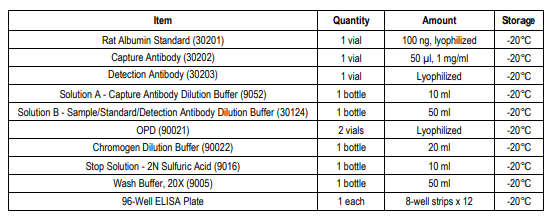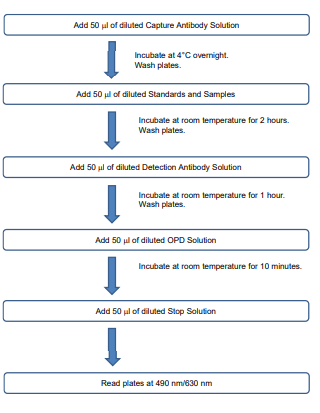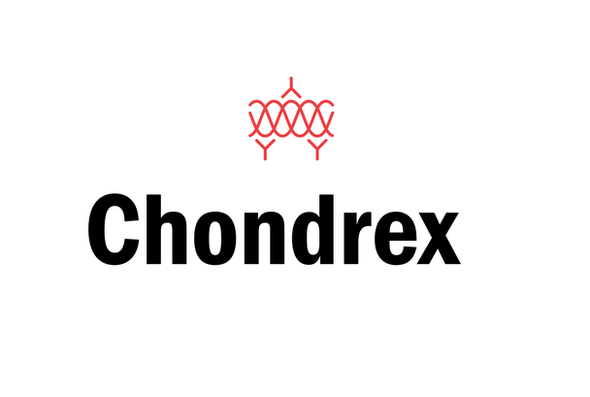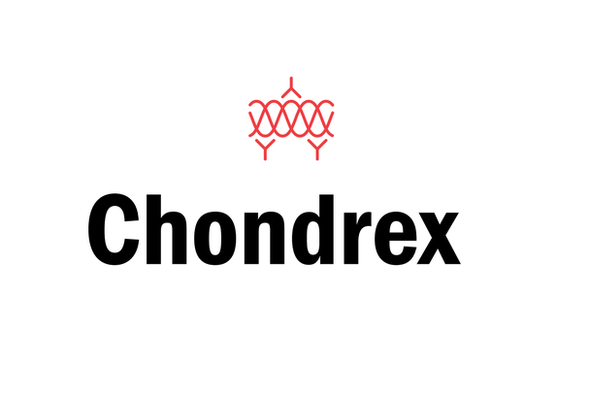Description
Rat Albumin Detection Kit - Cat Number: 3020 From Chondrex.
Research Field: Nephritis
Clonality: N/A
Cross-Reactivity:
Host Origin: N/A
Applications: N/A
Isotype: N/A
Detection Range: 100 ng/ml-1.6 ng/ml
Sample Type: Serum, Plasma
Concentration: N/A
Immunogen:
PRODUCT SPECIFICATIONS
DESCRIPTION: ELISA Kit to quantify rat albumin
FORMAT: 96-well ELISA Plate with removeable strips
ASSAY TYPE: Sandwich ELISA
ASSAY TIME: 3.5 hours
STANDARD RANGE: 100 - 1.6 ng/ml
NUMBER OF SAMPLES: Up to 40 (duplicate) samples/plate
SAMPLE TYPES: Urine and Serum
RECOMMENDED SAMPLE DILUTIONS: 1:500 (at least)
CHROMOGEN: OPD (read at 490 nm)
STORAGE: -20°C for 12 months
VALIDATION DATA: Intra-Assay (2.1-6.5%)/Inter-Assay (4.1-8.7%)/Spiking Test (91-94%)
INTRODUCTION
Albumin is the most abundant protein in plasma, accounting for more than half of the measured serum protein. It consists of a single polypeptide chain of 585 amino acids with a molecular weight of 66.5 kDa. Because of its high molecular weight and concentration in plasma, albumin is critical in maintaining plasma osmotic pressure.
In human, plasma albumin levels are significantly decreased in patients with severe liver disease (2) or poor nutritional status (5) as albumin synthesis takes place exclusively in the liver (1). Alternatively, low plasma albumin levels occur due to increased capillary leakage caused by critical illnesses such as kidney disease (3), inflammation (4), sepsis, and major surgical stress (6). In addition, excretion of albumin into urine (albuminuria) is very low in healthy individuals, but it is significantly increased by renal damage in glomerulonephritis (7) and diabetic nephropathy (8,9).
In fact, rat disease models of sepsis (10), glomerulonephritis (11), and diabetic nephropathy (12) demonstrate comparable albuminuria with human patients, suggesting that rat urinary albumin levels are useful for evaluating disease severity and treatment efficacy.
Chondrex, Inc. provides a Rat Albumin Detection ELISA Kit (Cat # 3020) and a Rat Urinary Protein Assay Kit (Cat # 9040) depending on the purpose of the study.
KIT COMPONENTS

ASSAY OUTLINE

NOTES BEFORE USING ASSAY
NOTE 1: It is recommended that the standard and samples be run in duplicate.
NOTE 2: Warm up all buffers to room temperature before use.
NOTE 3: Crystals may form in Wash Buffer, 20X when stored at cold temperatures. If crystals have formed, warm the wash buffer by placing the bottle in warm water until crystals are completely dissolved.
NOTE 4: Measure exact volume of buffers using a serological pipet, as extra buffer is provided.
NOTE 5: Cover the plate with plastic wrap or a plate sealer after each step to prevent evaporation from the outside wells of the plate.
NOTE 6: For partial reagent use, please see the assay protocol’s corresponding step for the appropriate dilution ratio. For example, if the protocol dilutes 50 µl of a stock solution in 10 ml of buffer for 12 strips, then for 6 strips, dilute 25 µl of the stock solution in 5 ml of buffer.
Partially used stock reagents may be kept in their original vials and stored at -20⁰C for use in a future assay.
NOTE 7: This kit contains animal components from non-infectious animals and should be treated as potential biohazards in use and for disposal.






